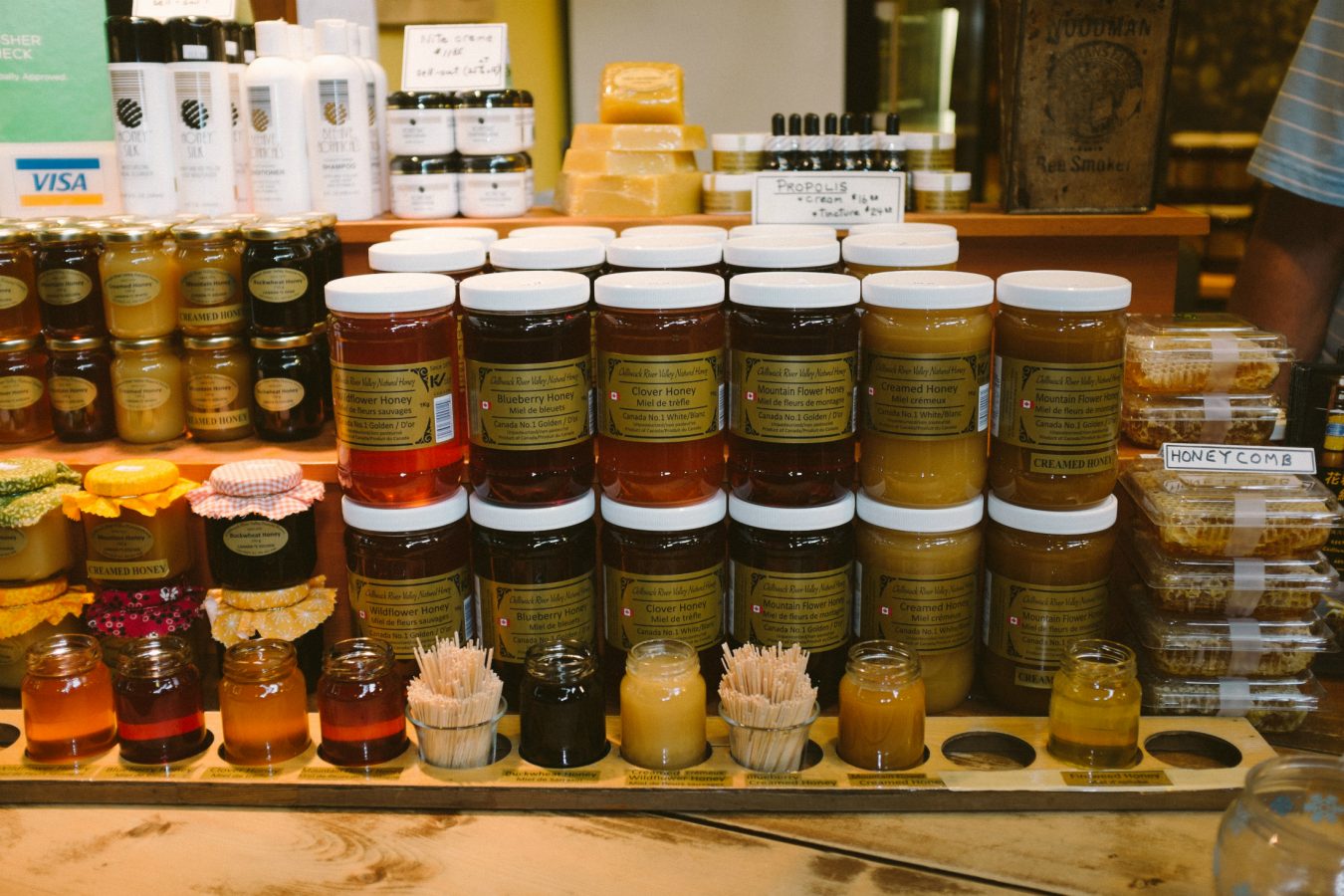As seems to be the case with many entrepreneurs of all sorts, Richard Pye didn’t set out to have his own bee farm. One might say the bees found him.
It all started over 35 years ago, when Agnes Coutts set out to pollinate a few of her raspberry bushes and started keeping bees on her property in Chilliwack. Pye’s wife, Shirley, started helping out, and the venture began to grow. The Pyes became close friends with Coutts and her husband—so much so that when Coutts tragically and suddenly died, they stepped up to help on the bee farm. “I tried to stay and help her husband who was a friend, and he didn’t do too well and we ended up taking the company over,” says Pye, standing behind his honey stall at the Granville Island Public Market. “I learned quite a bit from him, I went to Simon Fraser and took the Bee Masters course, and from there it’s been a blessing ever since.”
Chilliwack River Valley Natural Honey has been a staple of the Granville Island market for nearly three decades. Do not confuse this honey with the stuff found in plastic squeeze bottles at big-box grocery stores—this is different. This is special.
The Pyes take good care of their little buzzing friends, working with nature instead of against it. What does that mean, exactly? When a plant is about to flower, they physically move the bees—always at night, so as not to disturb them—to that area of the farm. Then the bees simply do their work, pollinating the plants and creating very diverse honeys in the process. There is sunflower, maple, buckwheat; raspberry, fireweed, wildflower; blueberry, thistle, and mountain. Each one is 100 per cent natural and unpasteurized. “It’s the nectar in the flower that will give you the taste of the honey and the colour of the honey,” Pye explains. Vividly illustrating this point are the jars of honey piled atop the service counter that glow with different shades of yellow and brown.
For Pye, a man who became a beekeeper because of a cherished friendship, the community connections are another happy side effect of the job. “We find a lot of people bringing friends back to visit us,” he says. “You’ll come back with your mom and dad and you’ll show them the honey you’ve been eating, and they’ll come back, and it goes on and on. We get to meet all your friends and family and build that relationship.” Vancouverites are serious about their honeys, and their bee pollen, too (another product with immense health benefits that the company produces). “People are very conscious about honey and pollen and what the bees can do,” says Pye. Himself included—even if it wasn’t on purpose.











